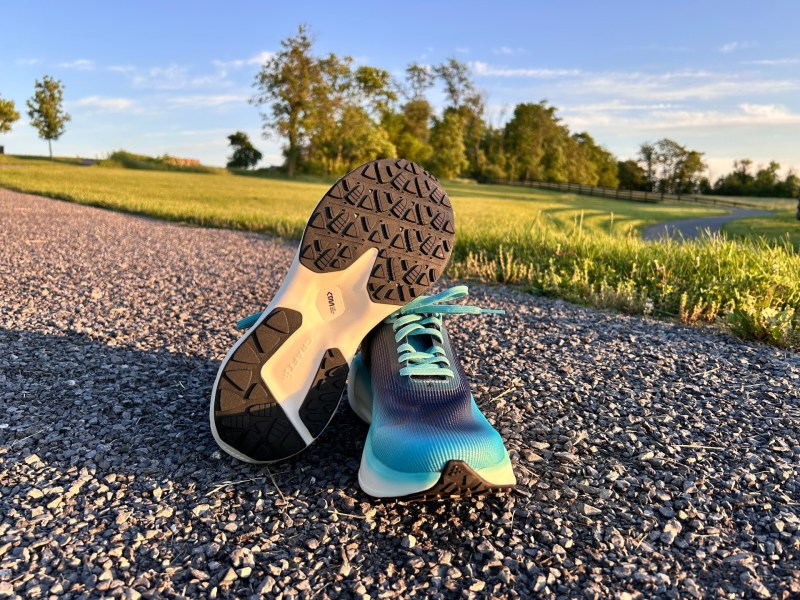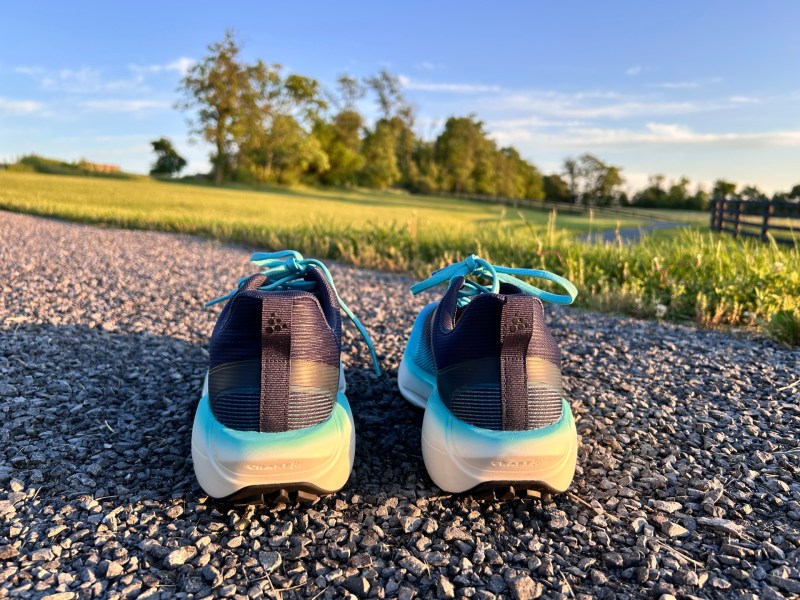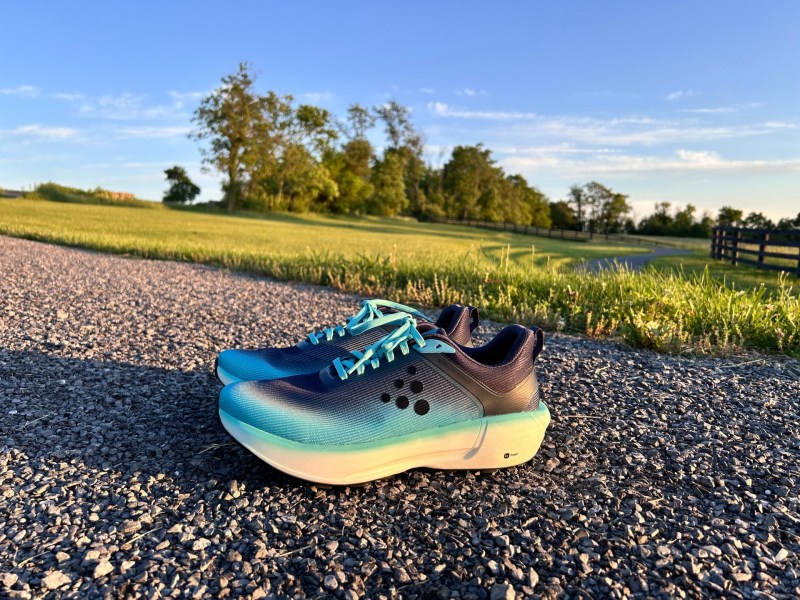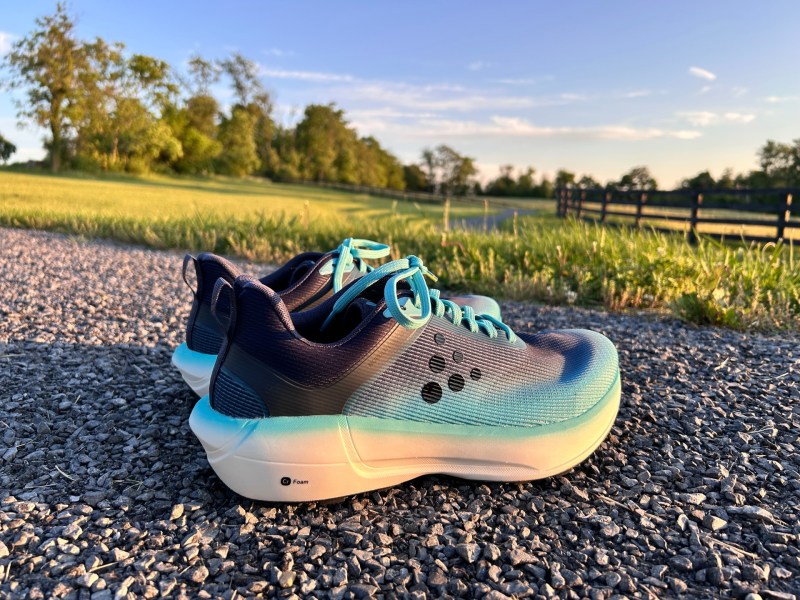When it comes to shoes, runners have almost too many choices. There are daily trainers, speed shoes, trail shoes, plated racers, and more. High-end models start around $150, so building up a “quiver” of footwear requires $300, $450, or more. That can make the simple, refreshing act of running an expensive hobby.
However, some manufacturers produce road-to-trail shoes that can handle both roads and trails, as well as everything in between. One such model is the Craft Nordlite Ultra 2, which features a supercritical midsole and a lugged outsole. I tested it on the roads and trails of Virginia’s Shenandoah Valley to answer the question: Is this the only running shoe you need? Read on for my take.
What to know about the Craft Nordlite Ultra 2

Swedish company Craft took shape in 1973, when inventor Anders Bengtsson designed a set of baselayers and began testing them in Borås, Sweden. Over the years, the company has become known for baselayers tailored to athletes, from elite performers to everyday adventurers. In 2021, Craft entered the footwear market with its Craft Tailored Motion (CTM) platform, in collaboration with endurance athlete Tommy Rivs.
Craft North America CEO Eric Schenker described the company’s entry into the footwear market, saying: “We lean into bold, timeless, Scandinavian design and functionality above all else. With a genuine heritage in the Swedish elements and endurance-specific sports, we develop high-quality performance sportswear. Our products are developed together with athletes worldwide, utilizing the finest materials and cutting-edge technology.”
Regarding road-to-trail shoes, he added: “Our road-to-trail or ‘gravel’ story is resonating with our customers. Today’s runners are looking for a shoe they can wear out the door, down the road, and onto their favorite trail without feeling like it’s “too much” or “not enough” on a variety of surfaces. Craft is the only brand right now really honing in on this hybrid category and doing it well.”
Nordlite Ultra 2 Specs:
Price: $159.95
Weight: 10.86 ounces (Men’s size 9)
Stack heights: Heel 40mm, forefoot 34 mm
Heel-to-toe drop: 6 mm
The Nordlite Ultra 2 midsole uses Craft’s Cr Foam, a supercritical material that provides a damp, energetic ride while being manufactured with sustainable practices. The HyperGrip outsole uses medium-depth lugs that can accommodate roads, gravel, and trails. The upper consists of TPU, polyester, and recycled polyester, which is stretchy, durable, and breathable. Inside, an Ortholite insole adds a soft sensation upon step-in.
Pros and cons of the Craft Nordlite Ultra 2

Pros
- Quality of materials and construction
- Versatility
- Clean, appealing design
- Outsole works on almost any surface
- Energetic, protective midsole
- Light and agile feel
Cons
- Upper could use more structure
- Outsole can feel rigid on roads and sidewalks
- Minor fit issues
How the Craft Nordlite Ultra 2 performed

I spent two weeks and ran over 50 miles in the Nordlite Ultra 2 on roads, gravel, and trails. Its performance was surprising, as I’d expected a plush cruiser, yet experienced a performance-oriented long-distance design. The shoe also provided visual delights, with a gorgeous purple and turquoise color scheme that drew comments from fellow runners.
Appearance-wise, the shoe resembled a secret prototype made available to the public. The way the midsole protruded from the heel, the TPU overlays on the upper, and the purple to turquoise color fade created a sleek, futuristic look. At my local running club, comments included, “What kind of shoes are those?” and “Nice shoes.”
The fit was mostly true to size, with about a quarter inch of extra room at the toes, and some minor slip around the heels. Overall, the fit was good, and I’d recommend going with your usual size.
Lacing up the Nordlite Ultra 2 required almost zero tensioning, as the upper clasped around the top of my foot, and I could tie up and go. The upper material was stretchy and soft, with excellent breathability. At times, I would’ve liked more support throughout, as the upper’s stretchy nature allowed my foot to roll inward or outward.
The Cr Foam midsole surprised me. Due to the shoe’s name (“Ultra” hinting at Ultramarathons), I expected a marshmallow-like ride focused on long-distance comfort. But it felt more like stepping on a tennis ball. At foot strike, there was a firm, resilient sensation, followed by a spring back that propelled me into my next stride. Throughout a run, the foam never lost its spring or bottomed out, and its responsive nature helped me keep pushing through the finish.
The Cr Foam was also suitable for any pace, whether on a slow recovery run or during speedier segments. There was a satisfying bounce at all speeds, and when I ran faster, the shoe responded with a pop at toe-off.
The outsole adhered well to both roads and trails, and felt especially comfortable on gravel surfaces. On pavement, the tread locked in, even more so than a road-focused shoe, and on trails, it handled dirt, rocks, and more, without slipping. While running on packed gravel, the tread had the perfect mix of traction and absorption. The outsole also provided a stable platform at landing, letting me settle in before making my toe-off.
On roads, the Nordlite Ultra 2 was excellent, with its all-paces versatility and fun-feeling energy return. Running on gravel was the shoe’s sweet spot, as the midsole-outsole combo thrived with bounce and grip.
For the shoe’s final test, I took it on the Signal Knob loop, a mountain run inside Virginia’s George Washington National Forest. The route covered over 10 miles and climbed more than 2,000 vertical feet. The shoes’ performance was good, not great, and they worked well on smooth dirt sections. The outsole gripped well on uphills and downhills, across dirt, rocks, and more. The midsole protected my feet from jagged rocks, as I experienced zero pinches on the notoriously rugged trail. But the design’s road shoe leanings were exposed by uneven terrain and the need for additional stability.
Over the 10-mile loop, I would’ve liked the locked-in stability of a true trail shoe and deeper lugs to handle softer dirt and steeper sections. The Nordlite Ultra 2 got the job done, but the combination of a tall stack height, soft midsole, and stretchy upper made for a tippy feeling on rocky terrain.
Can the Craft Nordlite Ultra 2 serve all your running needs?

If you want to buy one running shoe only, the Craft Nordlite Ultra 2 can handle almost anything. It particularly excels on road and gravel, and can accommodate trail runs on smooth terrain. However, if you regularly trail run on rocky, technical stretches, I recommend adding a trail-focused shoe to your gear locker.
Beyond that, the shoe’s clean Swedish design, beautiful colors, and energetic midsole make it a fun tool for all paces. Whether you prefer easy runs or faster runs, on roads or mixed surfaces, the Nordlite Ultra 2 exhibits versatility that few shoes can match.



